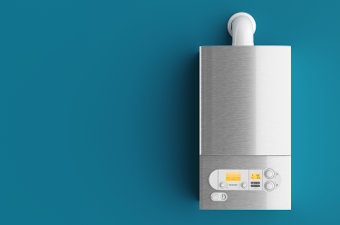Boilers
Last Updated: 02/07/25
A self contained fuel burning appliance of less than 300,000 Btu per hour energy input, for supplying low pressure steam or hot water for space heating applications. A heating unit that meets this definition and also provides hot water for domestic or other use is considered a boiler for purposes of this agreement.
 Product Details
Product Details
To the maximum extent practicable, federal agencies are required to buy sustainable products, which are products that meet the purchasing program(s) listed below.
If there is more than one program listed below, agencies are directed to prioritize multi-attribute products, which meet statutory purchasing program requirements (![]() ) and one or more required Environmental Protection Agency purchasing programs.
) and one or more required Environmental Protection Agency purchasing programs.
Review our frequently asked questions for more information.
|
Product Type
|
Procurement Info
|
Where to Buy
|
|---|---|---|
| Commercial | ||
| Residential |
 Legal Requirements
Lists federal requirements related to the purchase of this item, including applicable Federal Acquisition Regulation (FAR) requirements
Legal Requirements
Lists federal requirements related to the purchase of this item, including applicable Federal Acquisition Regulation (FAR) requirements
 Life Cycle Cost Savings
Life Cycle Cost Savings
Life Cycle Costing (LCC) aims to quantify the financial impact of a product over its entire life cycle to assist consumers in making decisions that will save them money over the long term.
For most applications, energy-efficient commercial boilers have the lowest life-cycle cost. An efficient product is cost effective when the utility costs saved over the life of the product exceed the additional upfront cost (if any) of the more efficient model. Federal purchasers may assume that Energy Star-qualified products and products meeting FEMP-designated efficiency requirements are life-cycle cost effective. However, users wishing to determine cost effectiveness for their application may do so using the cost savings calculator on FEMP's product web page![]() .
.
 Guiding Principles
Guiding Principles
Contributes to meeting The Guiding Principles for Sustainable Federal Buildings
 Additional Guidance
Additional Guidance
Energy Star applies to residential boilers of up to 300,000 rated capacity (Btu/h) and small commercial boilers of 300,000 - 2,500,000 rated capacity (Btu/h), while FEMP covers commercial boilers of 2,500,000 - 10,000,000 rated capacity (Btu/h).


 FEMP
FEMP
 Energy Star
Energy Star